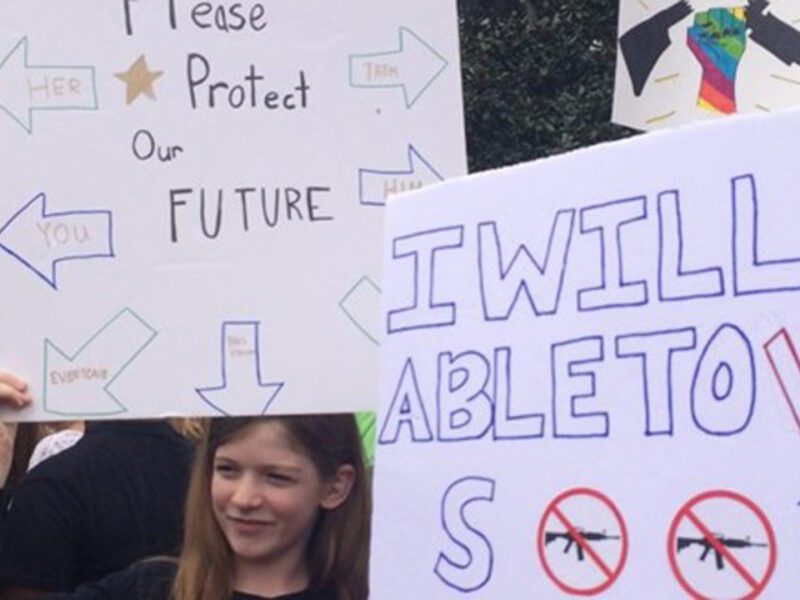
Florida’s election could have long-lasting impact on local school boards
Politico | By Andrew Atterbury | November 5, 2024
Gov. Ron DeSantis’ mission to remake the state’s education system has shifted local school boards, and Florida voters get one more chance to weigh in on Tuesday.
TALLAHASSEE, Florida — Gov. Ron DeSantis’ efforts to elect more conservatives on Florida school boards hit a snag this summer. But key wins next week could give Republicans more local education allies — and set them up to elect even more in the long run.
This election cycle has been harsh for DeSantis’ school board push. In August, his endorsees lost 11 races, including some in deep red areas, even as they tilted one school board — Duval County — to a conservative majority. The governor has a chance to make up ground on Tuesday with six endorsed school board candidates up for election, including three who are facing opponents backed by Democrats. And voters are also deciding on a ballot measure that would add partisan labels to school board races, which could net the party more seats in the increasingly red state.
Since becoming governor, DeSantis has been especially active in reshaping education, targeting issues like diversity, equity and inclusion, or DEI, in schools and attempting to root out any traces of “woke ideology.” Two years ago, DeSantis first got involved in school board races with endorsements and donations and posted a wildly successful record: 29 out of 34 candidates he backed — 30 in the summer election and four in November runoffs — ultimately won seats.
But with DeSantis dedicating much of his time and resources to opposing high-profile ballot measures that would legalize marijuana and strengthen abortion rights this fall, Democrats see this as a time to strike. Florida Democrats were quick to claim that the school board defeats suffered in August by candidates with support from DeSantis and conservative group Moms for Liberty are a sign that the governor is losing grandeur in the wake of his failed presidential bid, and have come out against the school board amendment in addition to opposing his candidates.
“In August, Florida Democrats proved that Floridians are getting tired of Ron’s culture wars,” Florida Democratic Party Chair Nikki Fried said in October, after announcing a new wave of local endorsements.
But the GOP leader and his allies say otherwise, contending that conservatives scored key seats during the August election, namely by picking up two spots to form a new majority in Duval, an area that supported President Joe Biden in 2020.
Out of the four matchups in which DeSantis and the Florida Democratic Party went head-to-head in August, Democrats notched two wins compared with one for the governor, with another heading to a runoff vote on Tuesday. These races were some of the more heated in Florida, as candidates squared off over issues like book banning and the role parents have in shaping their children’s education.
Florida Democrats endorsed 11 candidates in August. Seven won, and two of those races are heading to runoffs. The party’s efforts were meant to “fight back against Ron’s Moms for Liberty candidates and their partisan extremism,” Fried said.

Florida Democrats endorsed 11 candidates in August. Seven won, and two of those races are heading to runoffs. The party’s efforts were meant to “fight back against Ron’s Moms for Liberty candidates and their partisan extremism,” state Democratic Party Chair Nikki Fried said.
Democrats have since endorsed several local candidates for the runoff elections, setting up three clashes with DeSantis-backed opponents — one each in Lee, Miami Dade and Volusia counties.
Republicans, including DeSantis, are downplaying the losses and trumpeting their wins — this year and in 2022 — as proof that Floridians support their education platform.
Republicans devoted fewer resources to school board races this cycle “because we’ve got so much stuff going on,” DeSantis said in August, referencing the statewide abortion and marijuana ballot measures the GOP is fighting.
At the same time, the governor insisted it was important to endorse candidates in left-leaning places like Tampa to “counteract” the influence Democrats and teachers unions have wielded over school boards for years.
“But just think about it — you’re now in a situation where someone is celebrating, on the Dems’ side, that they held an area — a school board in a blue district?” DeSantis said shortly after the August school board results. “Usually, that would just be a fait accompli. So, if you look at the movement throughout Florida over the last several years, you have way, way more people on school boards that will put the students first, that do believe in parents’ rights, and are not going to use the schools to indoctrinate.”
These few outstanding school board runoff elections could prove to be the last officially nonpartisan campaigns in Florida, depending on how voters decide on a proposed constitutional amendment to add party labels. If the amendment passes, school board candidates starting in 2026 would be nominated in partisan primaries ahead of the November general election.
Unlike the two ballot measures on abortion and marijuana, which have featured countless public events and millions in advertisements, there has been next to no outreach from supporters or opponents for this school board fight. Polling for the partisan school board question reflects the lack of engagement on the amendment.
In a recent University of North Florida poll, 41 percent of respondents said they would support the amendment compared with 30 percent against and 30 percent undecided. Ballot measures need 60 percent support to pass.
Only recently did a dedicated campaign emerge on either side — the “No On One” effort launched by student-backed organizations against the amendment. Spearheaded by Florida Student Power, which says it is nonpartisan and has been funded in part by the ACLU, the campaign contends the amendment “makes it harder for parents to hold school boards accountable, decreases local power, and increases political partisanship.”
The groups have spent about $10,000 on advertisements against Amendment 1, which they contend will cut off independent voters from supporting candidates since Florida is a closed primary state.
“That’s the part that we want folks to realize — it’s more than just a partisan amendment, it’s a voter suppression amendment,” said Paula Muñoz, executive director of Florida Student Power.
GOP leaders and others who support the idea believe the amendment will give voters more transparency about who is running for office in their communities.
School board races are nonpartisan in the vast majority of states, with only four — Louisiana, Alabama, Pennsylvania and Connecticut — listing party affiliation on the ballot for all school board contests, according to Ballotpedia. More than 90 percent of school board members across the country are picked by voters without any party labels.
“At the end of the day, parties can use their influence and can win these races using the power of the party,” said Sen. Joe Gruters, a Sarasota Republican who supports Amendment 1. “The whole goal in these school board races is to try to pull the wool over the voters’ eyes — to trick voters into thinking they’re on their side. For me, it’s disingenuous.”





